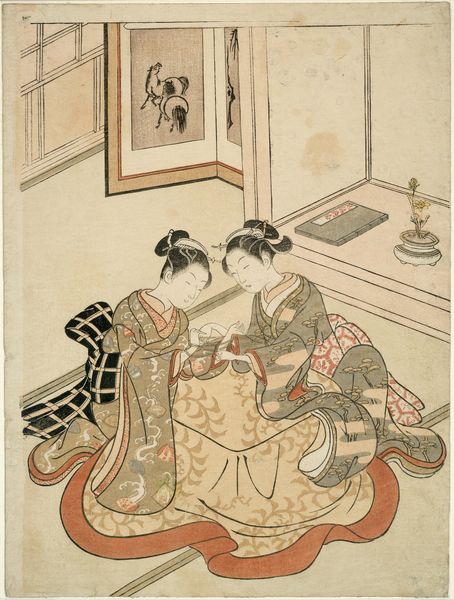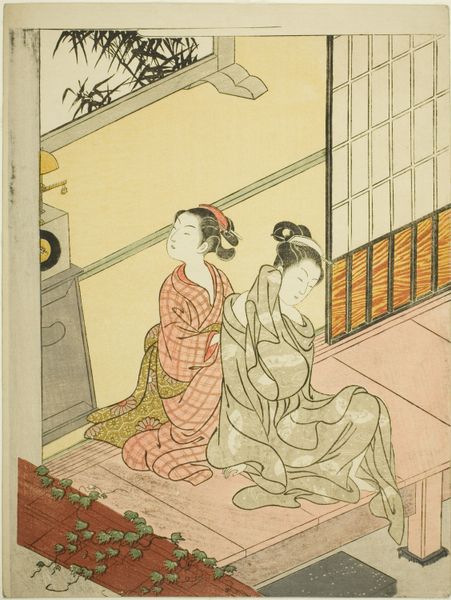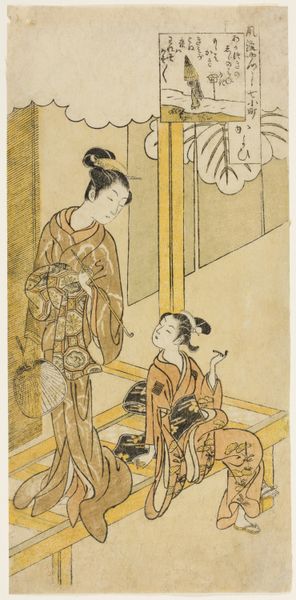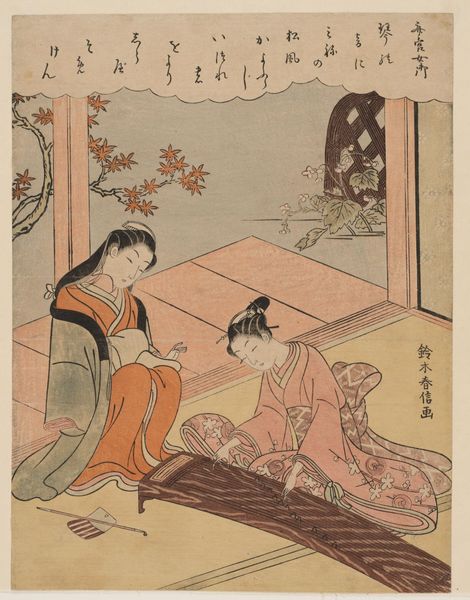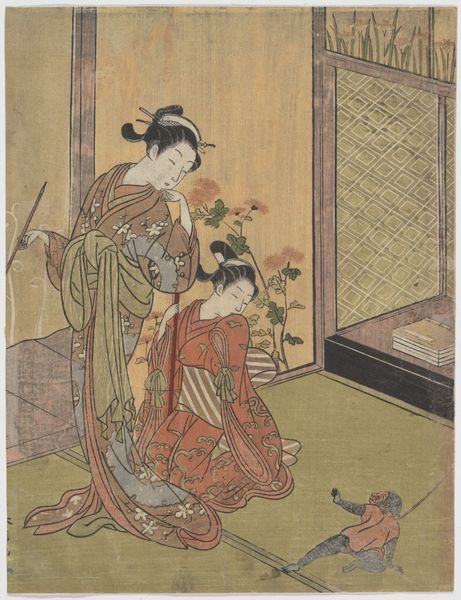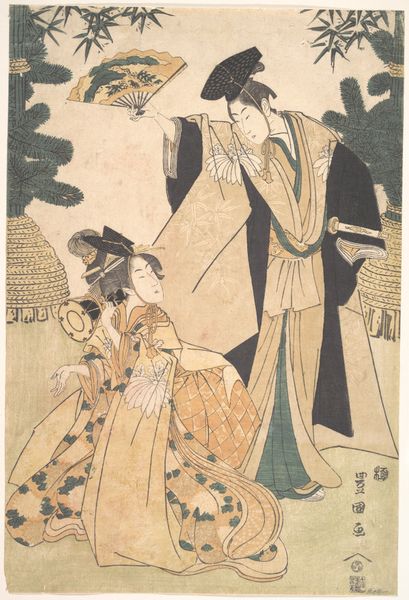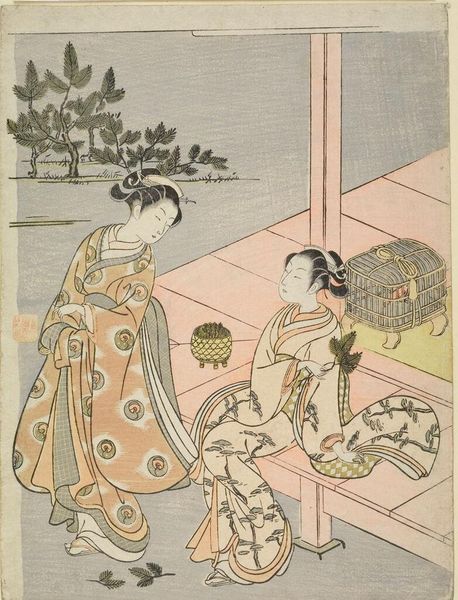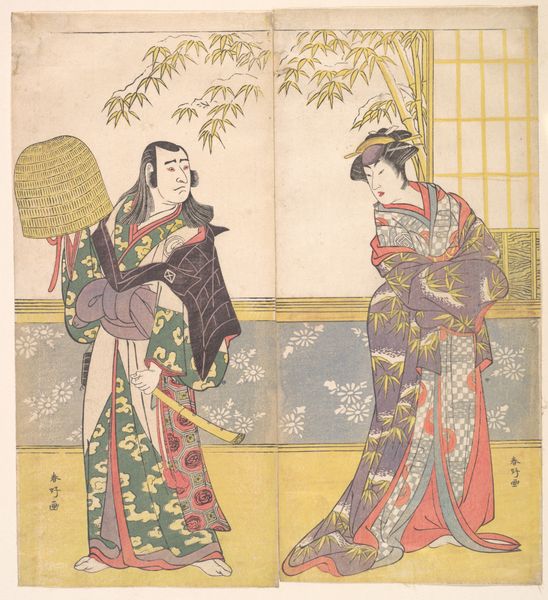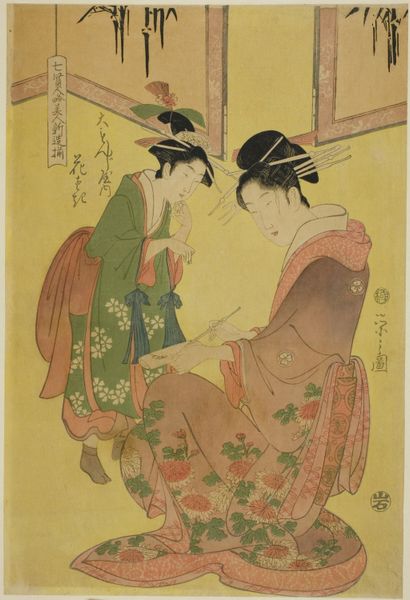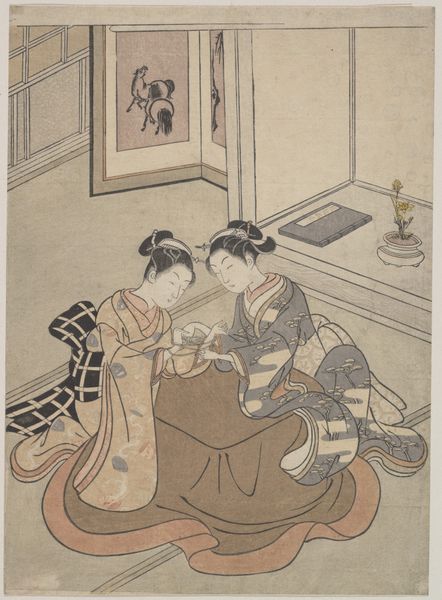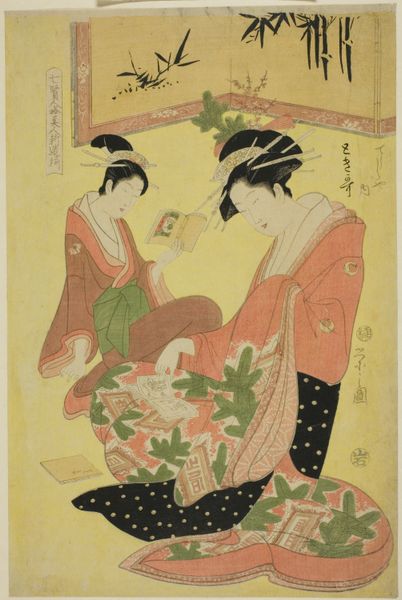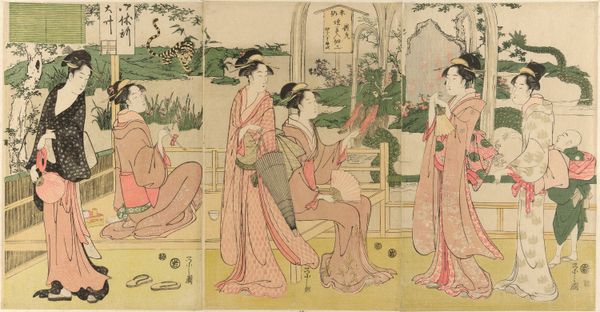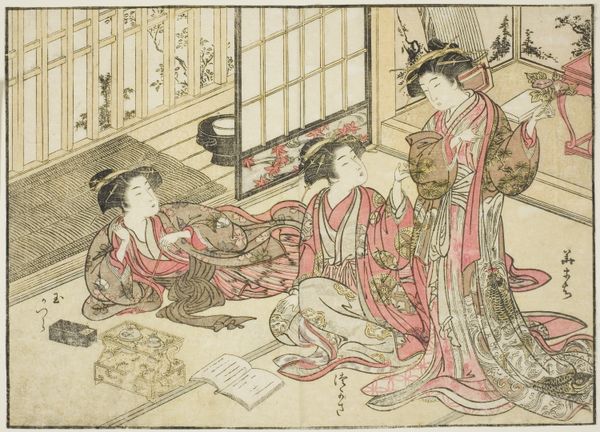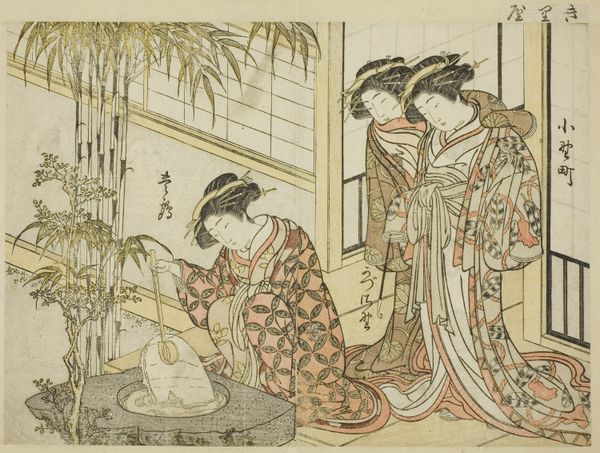
Two Girls Collecting Pine Shoots for New Year c. 1765
0:00
0:00
print, ink, woodblock-print
#
portrait
# print
#
asian-art
#
ukiyo-e
#
ink
#
woodblock-print
#
watercolour illustration
#
genre-painting
Dimensions: 10 3/4 × 7 13/16 in. (27.3 × 19.9 cm) (image, sheet, vertical chūban)
Copyright: Public Domain
Editor: This is "Two Girls Collecting Pine Shoots for New Year," a woodblock print in ink and color by Suzuki Harunobu from around 1765. The delicate lines and muted colours give it such a gentle feel. What stands out to you when you look at this? Curator: What I notice is the way Harunobu presents idealized beauty within the confines of 18th century Edo society. Think about Ukiyo-e prints—they weren't just art; they were a reflection of popular culture, fashion, and even social aspirations. These weren’t portraits of specific individuals, but archetypes, representing a contemporary ideal of feminine grace. Consider the politics of imagery, even in something that seems so innocent. Editor: So, beyond just being pretty, these prints had a real social role? Curator: Absolutely. These images, reproduced and widely distributed, played a part in shaping societal values and norms. They offer insight into how women were viewed and how they were expected to behave, as well as how New Year’s traditions functioned. Editor: It’s fascinating to think about art not just as something beautiful but also as a mirror—or even a shaper—of culture. Curator: Precisely. And in this case, Harunobu, like many Ukiyo-e artists, was also subtly navigating censorship. By depicting seemingly innocuous scenes of everyday life, artists could reflect contemporary society while avoiding direct commentary on the ruling powers. Isn't it interesting how social norms were subtly affirmed in art? Editor: It really is. I never thought about how a print of two girls could be a statement about social power. Thanks for pointing that out! Curator: My pleasure. It’s about looking beyond the surface to see how art operates within a cultural and political context.
Comments
No comments
Be the first to comment and join the conversation on the ultimate creative platform.
